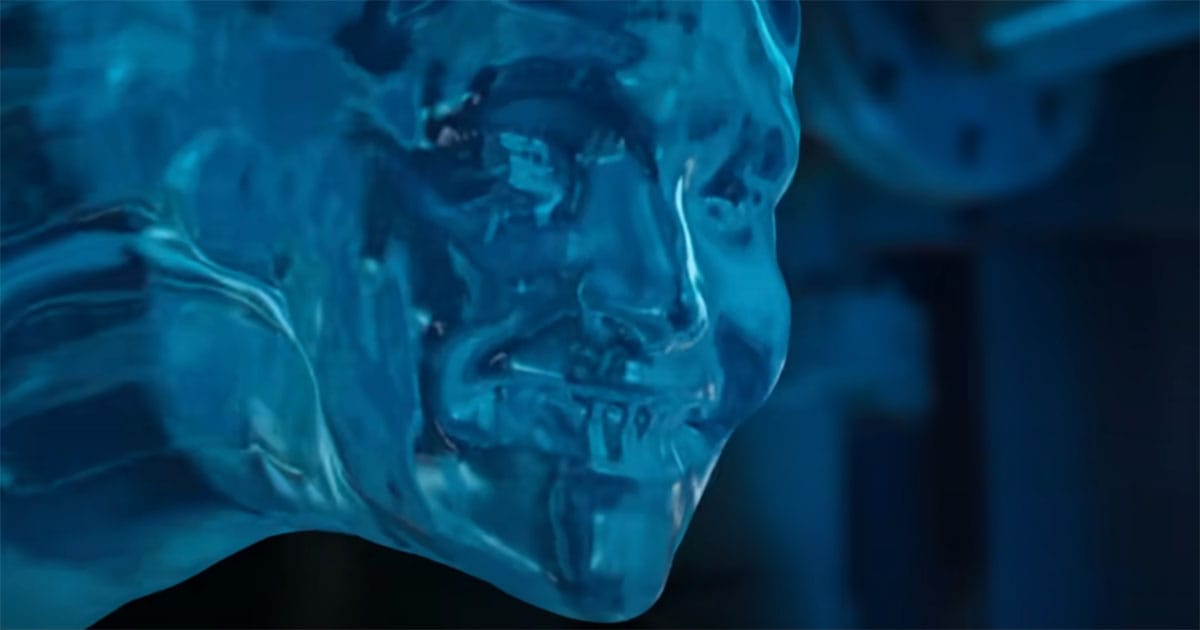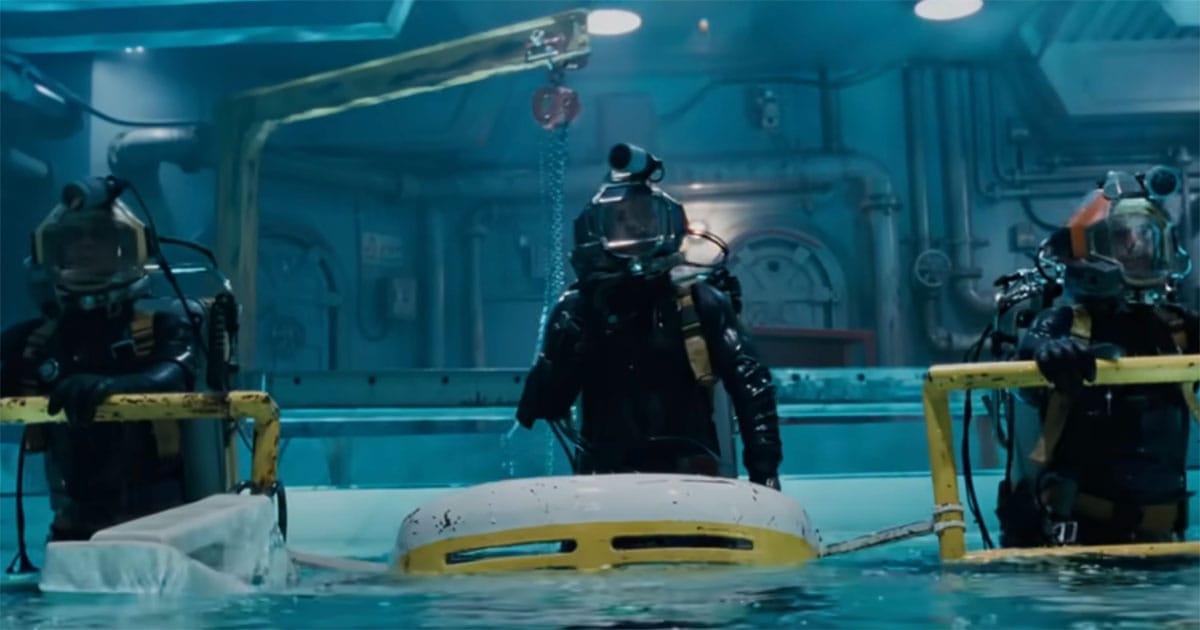The Abyss and the Courage to Believe
A gripping review of James Cameron’s 1989 sci-fi epic "The Abyss," exploring its deep-sea mystery, human courage, and the power of faith and reason beneath the ocean’s darkest frontier.

The Deep Frontier of Human Imagination
Few places on Earth inspire true wonder. The ocean floor remains one of them, an environment as alien as any world in the heavens. Long before men dreamt of living among the stars, they struggled to understand the darkness beneath their own seas. James Cameron's "The Abyss" takes that struggle and turns it into a test of courage and conscience.
Released in 1989, the film arrived at the close of the Cold War, when fear and faith in technology were locked in uneasy balance. Cameron, already admired for the relentless drive of "The Terminator" and "Aliens," looked inward rather than outward. He found mystery not in distant planets but in the uncharted waters of Earth, where human arrogance meets the unknown.
Every moment in the film feels heavy with realism. Metal creaks, lights flicker, and the sense of confinement presses close. Yet within that pressure lies something almost spiritual. The beings that dwell in the deep are not monsters but mirrors, reflecting mankind's potential for understanding and mercy. Cameron's message is that knowledge without humility can crush a man as surely as the weight of the ocean.
"The Abyss" is both adventure and reflection. It asks whether the same mind that splits the atom can also learn forgiveness. Beneath the waves, where light fades and silence reigns, the film finds an ancient truth. The last frontier is not space but the depths of the human spirit.
| Attribute | Value |
|---|---|
| Title | The Abyss |
| Director | James Cameron |
| Writer | James Cameron |
| Actors or actresses | Ed Harris, Mary Elizabeth Mastrantonio, Michael Biehn |
| Rated | PG-13 |
| Runtime | 2 h 20 min |
| Box Office | ~$90 million worldwide |
| U.S. Release Date | August 9, 1989 |
| Quality Score | 7.7 / 10 |
Synopsis
"The Abyss" begins with a tragedy deep beneath the Caribbean, where a United States nuclear submarine collides with an unknown object and vanishes. The Navy turns to a civilian deep-sea drilling platform called Deepcore, commanded by Bud Brigman, a man accustomed to pressure, both mechanical and personal.

His estranged wife, Lindsey, an engineer who designed the platform, arrives to assist in the recovery. Their reunion is uneasy, filled with professional respect and emotional strain.
A team of Navy SEALs joins the mission, led by Lieutenant Coffey, whose nerves begin to fray as the stress of the depths and the secrecy of the operation mount.
The crew soon discovers something extraordinary on the ocean floor. Strange lights move through the darkness, glowing with intelligence and grace. Lindsey glimpses one of the entities—a shimmering, liquid form that seems to study her rather than attack. She calls them NTIs, or Non-Terrestrial Intelligences.
As the mission continues, tension rises. Coffey, succumbing to paranoia and oxygen-induced instability, becomes convinced the glowing beings are a Soviet threat. He seizes control of a nuclear warhead from the sunken submarine, determined to destroy what he cannot understand. His madness drives the team to the brink of disaster as the storm above severs their link to the surface and traps them miles below.

Bud and Lindsey must face both the failing machinery and their own shared history. In one of the film's most human moments, Lindsey sacrifices herself in a flooding compartment, trusting Bud to revive her. That act rekindles their faith in each other and sets the tone for the final descent.
Bud volunteers to carry the disarmed warhead into the deepest trench, knowing he will not return. With only a liquid breathing suit and a light, he descends into the blackness, where the NTIs reveal their city of light. They communicate through images and emotion, showing him the violence of humanity yet sparing mankind through compassion. When Bud accepts his fate, the beings lift him to safety, and their vast ship rises to the surface, a vision of hope emerging from the depths of the sea.
The story closes not in triumph but in reconciliation. Humanity has looked into the abyss and, for once, found mercy staring back.
Themes
At its core, "The Abyss" is about the limits of knowledge and the responsibilities that come with power. The film presents technology not as a savior but as a mirror that reflects human character. Deepcore's machinery, lights, and steel become an extension of the people who operate them—capable of great precision and equal destruction. Cameron reminds us that progress without conscience can drown its makers.

The ocean represents both mystery and judgment. It is vast, unknowable, and indifferent to pride. Within that dark pressure, humanity's ambitions shrink to scale. Every action in the deep must be deliberate, for even a mistake of inches can mean death. This tension between mastery and humility gives the film its moral weight.
The Non-Terrestrial Intelligences are not invaders or victims. They are observers who test whether mankind can rise above its fear. Their power is immense, yet they act without hatred. In their glowing calm, they reveal that the greatest intelligence is compassion. The film suggests that understanding is an act of grace, not a matter of dominance.
Cameron builds this idea through Bud and Lindsey, two people who rediscover faith in each other while surrounded by doubt. Their love becomes the counterpoint to military suspicion and mechanical control. In trusting the unknown, they recover what they had lost—belief in human decency. Their bond anchors the film's emotional truth.
There is also an undercurrent of Cold War anxiety. The nuclear warhead in the story is more than a weapon—it is the embodiment of fear turned physical. The abyss becomes a stage for mankind's internal conflict between courage and destruction. In sparing humanity, the NTIs offer a silent verdict that mercy is the only path forward.
In the end, the film aligns closely with Asimov's vision of moral science fiction. It values reason, empathy, and restraint over force. Knowledge becomes sacred only when guided by conscience. The abyss itself is not evil but neutral, waiting for man to decide whether he will sink in pride or rise in grace.

Who Will Watch This
"The Abyss" speaks most clearly to those who believe science and morality belong together. It appeals to viewers who admire exploration, not for conquest but for discovery. The film rewards patience, curiosity, and reflection—virtues often lost in faster, noisier stories.
For fans of classic science fiction, it recalls the thoughtful optimism of writers like Asimov and Clarke. It treats the unknown as something to be understood rather than feared. The story respects both science and spirit, showing that reason and faith need not be enemies when guided by courage.
Those drawn to technology will find satisfaction in Cameron's realism. The machinery feels authentic, the underwater sequences are astonishing, and every detail serves the narrative rather than spectacle alone. The film's craftsmanship honors the kind of audience that values precision and honesty in storytelling.
Above all, "The Abyss" will speak to those who still believe that character matters. It is for men and women who see strength not only in invention but in virtue. Its message endures because it treats decency and sacrifice as heroic qualities. When the credits roll, one feels not merely entertained but reminded that the greatest discoveries often begin within.

